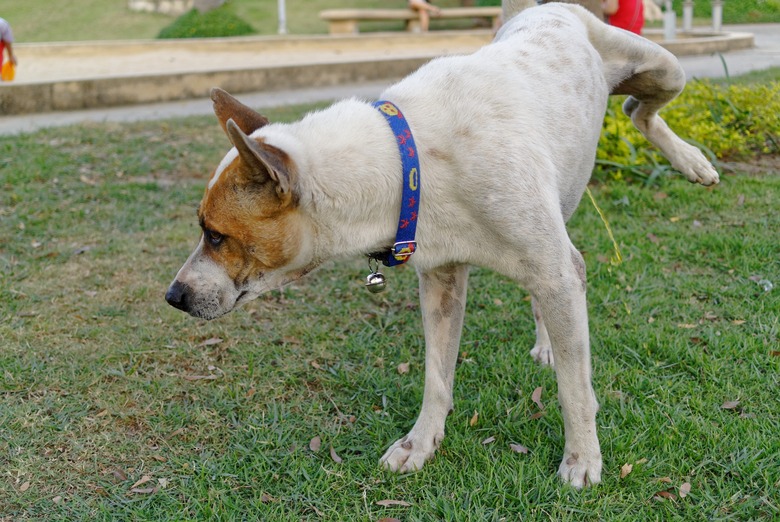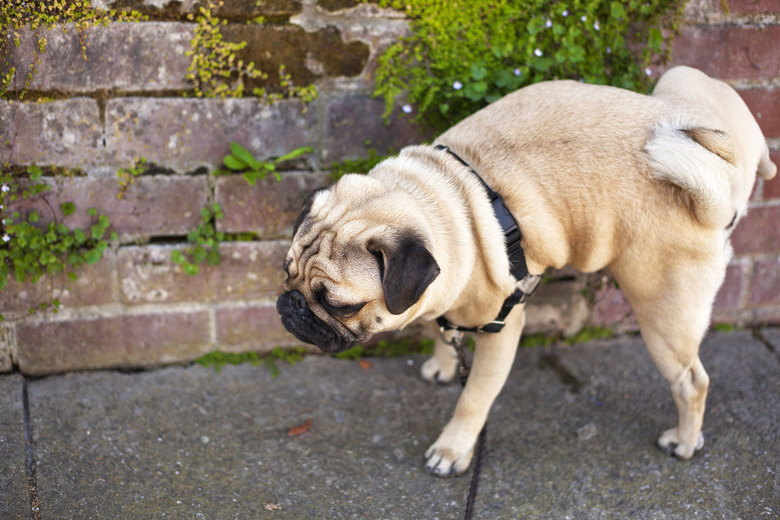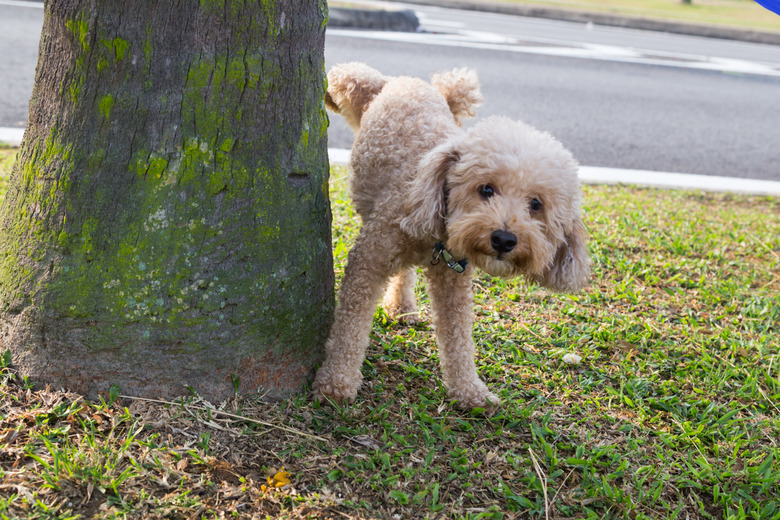Why Does My Dog Pee So Much On Walks?
When you're walking your dog, you notice that he has to pee multiple times on walks. You're wondering: Do dogs urinate this much? Is it necessary to stop every few seconds to sniff a tree, fire hydrant, the grass or a pole and then proceed to pee only a small amount on it? What's that about?
There are biological reasons why your dog keeps stopping to urinate a small amount, whether you have a male or a female dog. There may be nothing wrong with your dog unless this is new behavior. In that case, you may want to seek out medical attention.
What is scent marking?
What is scent marking?
Scent marking is when you walk your dog and he sniffs and pees, and sniffs more and pees again. While scent marking isn't just limited to urination, it's one of the key ways in which dogs gather information about other creatures—particularly dogs—that have peed there as well.
What’s discovered through scent marking
What's discovered through scent marking
If your dog is scent marking, he is asserting his social status among other canines, finding out about unfamiliar pups, and perhaps even looking for another dog to mate with. Scent marking is how dogs establish safe socializing with other dogs. Plus, dogs may even be able to learn about each other's diets, health, stress levels and other factors about one another through scent marking.
Over-marking and adjacent marking
Over-marking and adjacent marking
If your dog pees over a spot where another canine (or some other creature entirely) has already gone, then this dog marking ritual is called over-marking. While both female and male dogs over-mark, males tend to do it more to establish dominance and mark their territory. Additionally, while both intact and spayed and neutered dogs mark, intact males tend to do it more. Usually, female dogs will tend to adjacent mark, which means they will pee about 4 to 5 feet from where they smell the urination.
Other reasons dogs scent mark
Other reasons dogs scent mark
Scent marking doesn't just apply to the great outdoors; you know this if you ever had a puppy or a dog who wasn't house trained. Dogs urinate both outdoors and indoors if they have anxiety issues as well.
For instance, your dog may pee because he has separation anxiety, he has issues with other people or pets in the house, you get a new pet, a new person enters the household such as a baby, spouse or partner, there's an unfamiliar dog peeing in the yard, someone leaves the house or you get new furniture that smells unfamiliar or has another animal's scent on it.
Some male dogs may urinate inside and outside in order to impress a female dog, particularly if she's in heat. Others will mark their territory as a sort of competition with another male dog.
Is it scent marking or something else?
Is it scent marking or something else?
Scent marking is not the same as submissive or excited urination or house-soiling. If your dog is peeing multiple times throughout the day in your home, for instance, he may just not be properly house trained, or he may be on a medicine that makes him need to go to the bathroom often. If your dog is house trained and he's still peeing indoors a lot (or outdoors as well), maybe he's drinking too much water.
Medical issues may also be at play. Some of these include diabetes, bladder stones, tumors, intestinal parasites, kidney disease, an infected bladder, or liver disease. If you just noticed that your dog started peeing more frequently indoors and/or outdoors, then you should call your veterinarian right away to do some tests. You may have to put your dog on some medications or have surgery done if the issue is serious.
Dealing with your dog’s urination issues
Dealing with your dog's urination issues
Scent marking and stopping multiple times to urinate a small amount on walks are perfectly natural behaviors. You should not yell at your dog or try to force him to keep walking if he wants to stop sniffing. After all, walks serve two purposes: to get your dog moving and to stimulate his brain. Sniffing and scent marking are excellent for the latter.
Stopping so often may only be an issue if your dog comes home from walks and still has a lot of energy, and/or if he's overweight because he doesn't exercise enough. Talk to your veterinarian about solutions. They may recommend a different kind of leash, doing some gentle training, or taking your dog to the dog park to let loose and burn off energy.
If your dog is going in the house, it's never a good idea to yell at him. Instead, follow some training techniques like rewarding him with a treat when he does go outside. You should also never let him be alone in the house unsupervised. Instead, look for signs that he has to go, and then put him outside immediately to relieve himself.
If he does have an accident, clean up the spot with dog urination spray. You can also make your own solution using ingredients like water and white vinegar, and then sprinkling baking soda on it to lift up the urine smell. If you don't properly remove the smell, then your dog may just keep peeing in the same spot.
Best practices for walks
Best practices for walks
When you're taking your dog for a walk, along with letting him sniff around and pee multiple times if he has to, make sure you use a regular leash, and not a retractable one. Those are dangerous and may not retract fast enough if your dog runs across the street or tries to attack another pup.
If you're walking your dog when it's hot outside, make sure you bring a water bottle and a collapsible bowl. If it's so hot that the pavement is warm, then walk your dog on the grass instead so as not to hurt his feet. You can also put booties on him to protect his feet in warm or cold weather.
If your dog becomes very distracted by things going on around humor you want him to get more exercise instead of sniffing so often, bring high-value treats along to get his attention. And if you walk at night, wear high-reflective clothing as a safety precaution.
Conclusion
Conclusion
Dogs pee multiple times on walks because they are likely scent marking, a practice they use to determine and establish their social ranking, learn about other dogs, and find a mate. They may also have some medical or anxiety issues at play. Scent marking is perfectly natural, but if you notice that something seems off or this behavior is new for your dog, make sure you call your veterinarian right away to eliminate any medical issues.


